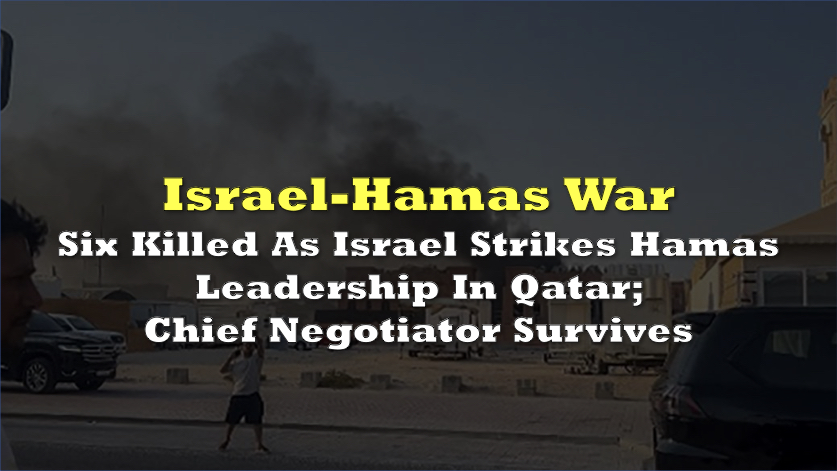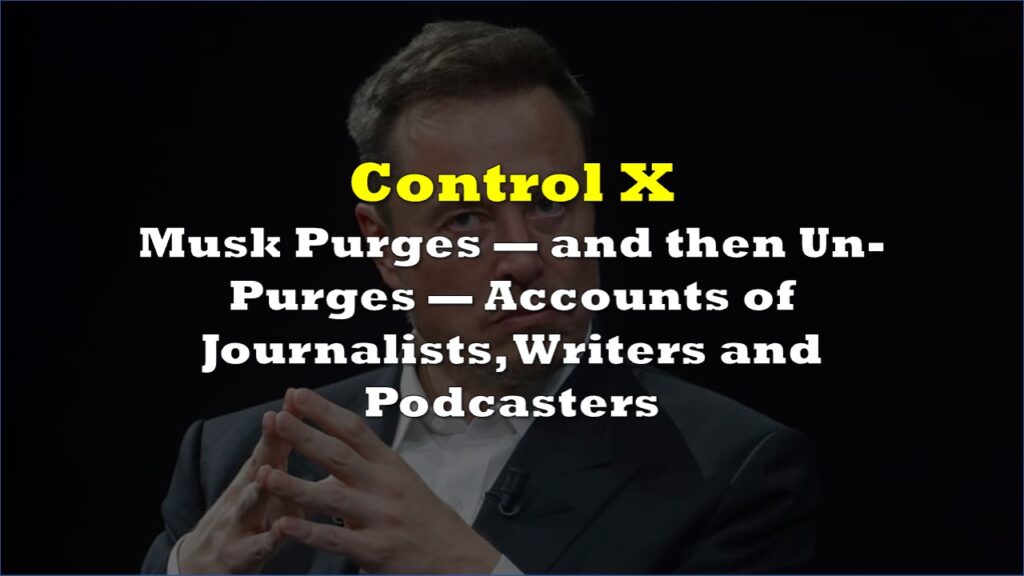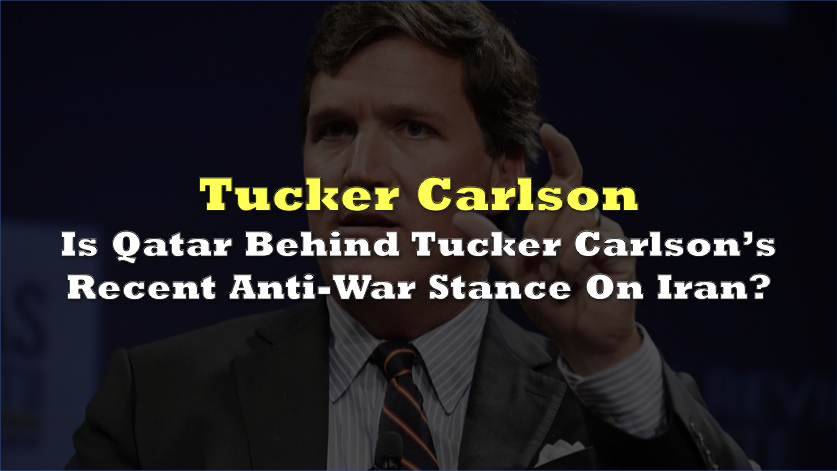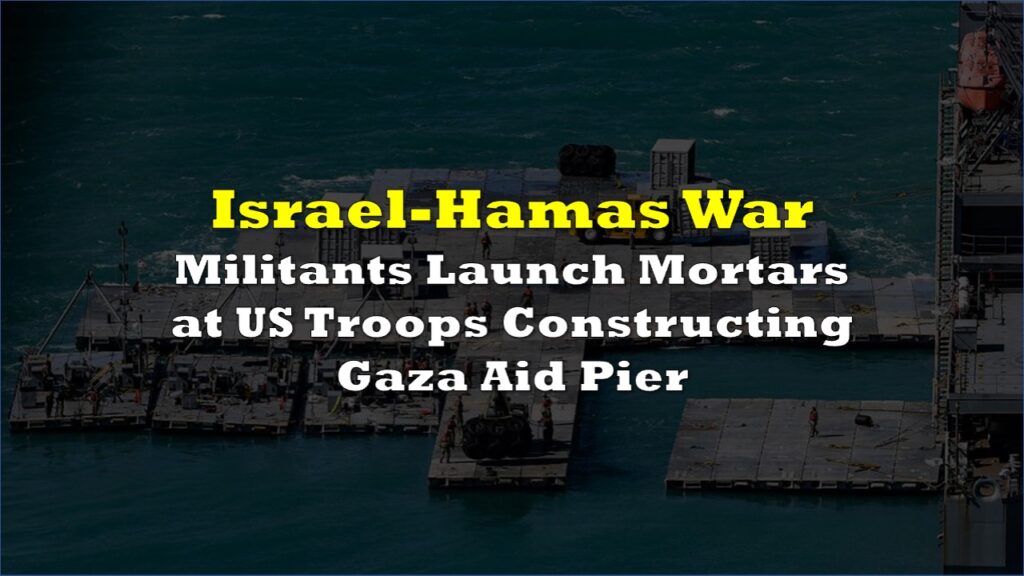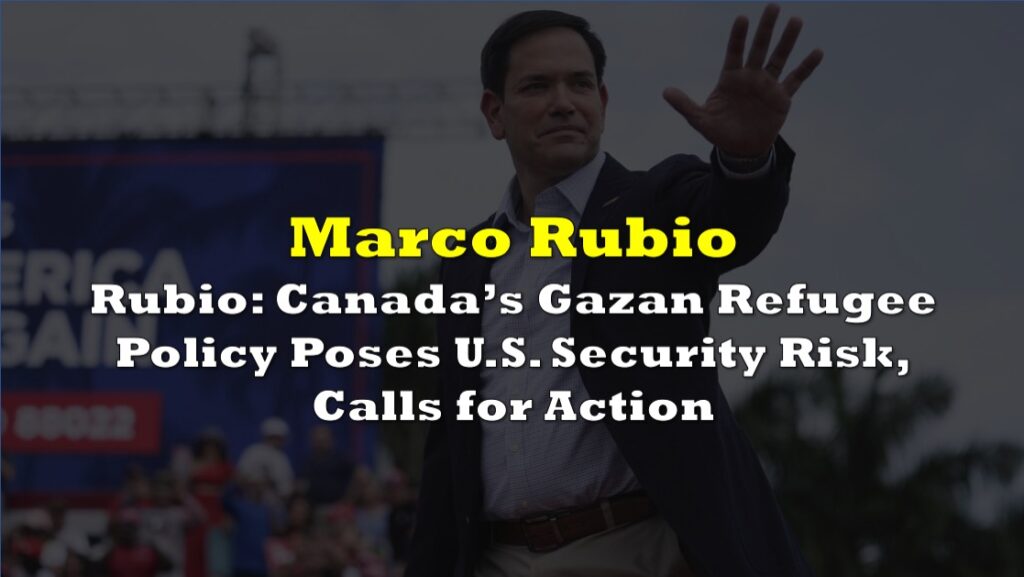Israel struck Hamas leadership in Doha on Tuesday, using more than 10 fighter jets and over 10 munitions, killing six people but missing chief negotiator Khalil al-Hayya.
Hamas said five of its members were killed—among them al-Hayya’s son Humam and his office director Jihad Labad, Abdullah Abdul Wahid, Moamen Hassouna, and Ahmed al-Mamluk. Qatar also lost an Internal Security Force officer, namely Corporal Bader Saad Mohammed al-Humaidi al-Dosari.
The negotiating delegation, including al-Hayya, survived. Reports say senior figure Zaher Jabarin—Hamas’ finance chief and a member of its five-man leadership council—was among those targeted but survived.
Qatar said the missiles hit residential buildings in an upscale West Bay Lagoon compound housing members of the Hamas political bureau—an unprecedented, publicly acknowledged Israeli attack on Gulf soil that drew global condemnation and immediately imperiled Gaza ceasefire and hostage talks.
Two Israeli sources described the strike as “months in the making,” accelerated in recent weeks. An Israeli official said the long-range package required mid-air refueling and all jets struck a single target in Doha.
Qatari Prime Minister Sheikh Mohammed bin Abdulrahman bin Jassim Al-Thani condemned the attack as “state terrorism,” said Qatar “reserves the right to respond.” He said Israel used weapons that evaded radar and confirmed a Qatari security officer was among the dead.
Israeli Prime Minister Benjamin Netanyahu cast the strike as a peacemaking action and said Israel has accepted the latest US ceasefire principles. Israel’s ambassador to the UN Danny Danon said there will be “no immunity” for Hamas “not in Gaza, not in Lebanon, and not in Qatar.”
In Washington, Israel’s ambassador Yechiel Leiter said, “If we didn’t get them this time, we’ll get them next time.”
Was it successful?
However, Israeli officials said doubts are emerging about the efficacy of the operation after key targets survived. Separately, three Israeli sources said IDF chief Lt. Gen. Eyal Zamir and Mossad director David Barnea questioned the timing given a new US push to restart negotiations.
Qatar’s Foreign Ministry denied any prior notice, saying the first US contact came after explosions were already underway. President Donald Trump said he learned of the operation only shortly before it began—not from Israel but via the Chairman of the Joint Chiefs—and directed envoy Steve Witkoff to warn Doha “too late to stop it.”
Trump told reporters he was “very unhappy about every aspect” and “not thrilled about the whole situation.” The White House said the strike “does not advance Israel or America’s goals,” while also emphasizing it was “a wholly independent Israeli operation.” The Amiri Diwan said Trump expressed solidarity with Qatar by phone and urged it to keep mediating.
A diplomat briefed on the talks said Hamas was due to deliver its response to a US ceasefire framework to Qatari mediators on Tuesday evening. The strike disrupted that timeline.
A senior Hamas official said, “No one is talking” about a ceasefire now but Qatar had been pressing Hamas to respond positively to the American proposal.
Global condemnation
Leaders across Europe, the Arab world, and the Asia-Pacific condemned the action as a violation of Qatar’s sovereignty and international law. Australia called it “the wrong thing to do,” Malaysia termed it a “wanton act of aggression,” Japan warned it “hinders diplomatic efforts,” and others urged accountability.
Canada’s Prime Minister Mark Carney said the strike “directly imperil[s] efforts to advance peace & security.”
This is the first publicly acknowledged Israeli strike on a Gulf Cooperation Council state. It hit the capital of a US major non-NATO ally that hosts thousands of US troops at Al Udeid—the region’s largest American base—and one of the two principal mediators on the only active diplomatic track for a Gaza ceasefire and hostage releases.
Across 23 months of war, ceasefires totaled roughly nine weeks: one in November 2023 and a second in January 2025. A planned “second phase” permanent ceasefire collapsed when Israel resumed operations on in March to pressure for releases.
A late-July opening via US envoy meetings in Sardinia stalled. Washington then pulled out of talks with Hamas in Doha as Israel intensified operations. Over the weekend, the US tabled a new framework calling for immediate hostage releases and negotiations toward ending the war before the strikes were conducted.
Qatar says the Hamas political office opened in 2012 at Washington’s request to maintain indirect channels, framing the office as mediation infrastructure, not endorsement. The office has been central to ceasefire and hostage negotiations.
Information for this briefing was found via CNN, AlJazeera, and the sources mentioned. The author has no securities or affiliations related to this organization. Not a recommendation to buy or sell. Always do additional research and consult a professional before purchasing a security. The author holds no licenses.

